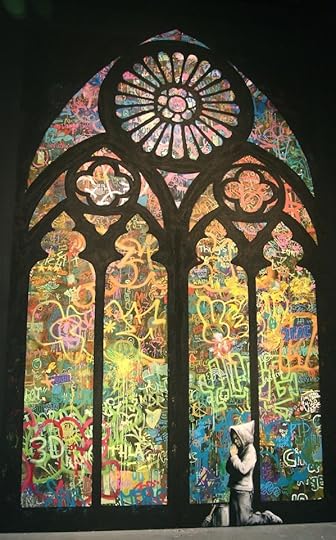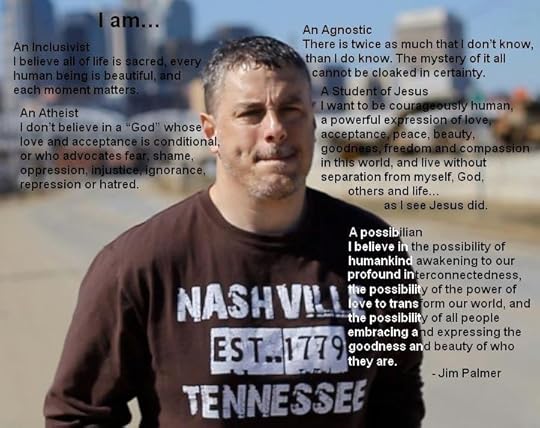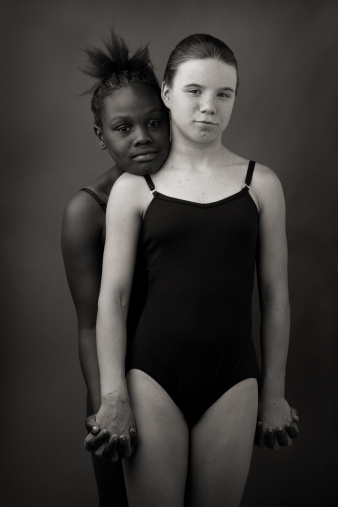Jim Palmer's Blog, page 79
February 7, 2013
There was a time
 “There was a time when Christians generally accepted, or even vigorously advocated:
“There was a time when Christians generally accepted, or even vigorously advocated:
the persecution of heretics,
the subordination of women,
the practice of religious intolerance,
the divine right of kings against democratic freedoms,
the institution of slavery,
indifference about cruelty to animals,
the suppression of civil rights,
white supremacy,
racism,
religious exclusivism,
opposition to scientific progress,
the burning of witches,
and the state’s enforcement of the Christian religion on the whole of society.
But over and against religious authority, the God-given spirit of truth that resides inside us knew that these attitudes and practices were not acceptable, even if they were justified in name of God or Jesus or the Bible. The church is not infallible and it often stands in direct opposition to the truth, rather than dispensers of it.”
- Jim Palmer, Notes From (over) The Edge


February 6, 2013
The real Jesus of history was something of a lighting rod.
The picture many people have been given of Jesus is of someone tip-toeing around in a flowing robe, speaking softly, and carrying a baby lamb in his arms.
But the real Jesus of history was something of a lighting rod. One view of Jesus states, “He was the greatest debunker of religious hierarchies and traditions, the greatest desacralizer of holy places, times, people, rituals, priests and things, that this world has ever seen. The religious establishment hurriedly condemned him to death for blasphemy, while the secular powers executed him for sedition.”
I see Jesus as someone who expressed great gentleness, love, kindness, empathy and compassion when the situation called forth this in him. He was committed to non-violence. But Jesus also gave people hell when the situation required it.


January 27, 2013
6 Religious Misnomers About Personal Transformation (Part I)
6 Religious Misnomers About Personal Transformation (Part I):
1. Transformation happens at a point in time.
I remember back in the day, being asked to write out my “personal testimony.” The three parts of a good testimony were: (1) How messed up I was before meeting Christ and getting saved; (2) My getting-saved/ come-to-Jesus experience; (3) How my life miraculously changed with Jesus now in my life.
This idea of transformation can be detrimental. Rather than fully engaging a process of personal growth and doing the personal work involved, we become passive, waiting for the next big God-experience or encounter to miraculously change, transform, fix, or heal us. Transformation is not something that happens ‘to’ you or someone (including God) does ‘to’ you. If you’re waiting for transformation to happen in your life, you’re going to be waiting a loooong time.
Your active, ongoing, and evolving relationship with yourself, God, others and life is all part of personal transformation. Even “miraculous moments” of transformation are preceded by all kids of factors that made such a moment possible.
People sometimes feel shame (what’s wrong with me) because they have not had one of those God-miraculously-changed/healed-me experiences. People pray day after day that God will change, transform, fix or heal them, and feel betrayed that it doesn’t happen.
The scriptures say we already have everything we need for life and wholeness. But it’s a journey to discover, access and re-condition ourselves according to the truth of we are and what we have. I wish God would just zap me and be done with it. Not gonna happen! The reality is that personal growth and true transformation isn’t for the faint of heart, which is why everyone isn’t doing it.
The personal work of transformation is messy. It will take you to places you’ve spent your whole life running from, ask you to let go of those things you have held onto for comfort and security, confront you in areas that feel too much to bear, require you to do the very thing you know you cannot do, and drive you to the very end of yourself where you must face your fears, and be vulnerable.
Transformation is not a linear process – a line of growth and maturation steadily going up. It’s one step forward, two steps back. It doesn’t happen all at once… it happens in bits and pieces and stages over time. For every one breakthrough, there are five breakdowns.
Audrey Lorde once described herself by saying, “I am my best work – a series of road maps, reports, recipes, doodles, and prayers from the front lines.” That sounds about right. Transformation is not something that happens at a point in time. Transformation is happening all the time, and sometimes we don’t even recognize it. I’m not even sure it’s advisable to make transformation a goal as if it is something to achieve. Life is inherently a transformative process – it’s like a dance. You just have to keep dancing.
2. Transformation is overcoming, improving, fixing or transcending your humanity.
Brené Brown wrote, “Shame corrodes the very part of us that believes we are capable of change.” Too often the underlying premise of religion is that human beings are inherently bad, born “sinners,” and repulsive to and deserving of God’s wrath because of our natural state of being. It may not be articulated quite this way but for all intents and purposes the so-called “Gospel” of Christianity-gone-astray demands people to essentially say, “God, please forgive me for being me.” I don’t get why these people don’t consider that we were created in the image of God. Factoring that in, the request would more accurately be, “God, please forgive me for being the me that you made me to be.” Huh???
Religion insists that at the core we are bad – that something is inherently wrong with us that needs to be fixed and overcome. Well, actually, it doesn’t even say it can even be fixed, just forgiven. This message gets pounded in our head continuously, and it erodes that part of us, which Brené Brown pointed out, we need intact to be capable of growth. Religion sabotages our relationship with ourselves, eliminating the possibility of ever taking on the fullness of who God created us to be.
Part of this view includes a faulty understanding of something that religion enjoys focusing on, “sin.” Contrary to what many of us have been told, sin is falling short of experiencing the love, peace, freedom, wholeness, and well-being that God desires for every person. Sin is an orientation toward illusion and falsity – it’s a diminishment of our true identity as good and beautiful children of God. Each person is shadowed to some degree by a false self, and when we give expression to that false self we sow seeds of disharmony in our world. God’s love and acceptance of each of us does not fluctuate based on where we are on the journey or in the process of becoming who we really are. Transformation is not behavior modification but a fundamental and profound shift in knowing who we are. Spiritual battle is the conflict between the false and true self.
It has always seemed curious to me the double-standard for a religious leader to say essentially, “You are human, which means you are a sinner, which means you cannot trust yourself. So instead, trust me and what I tell you.”
Too often religion cuts us off at the knees by telling us all the things that we can’t do or not capable of… because we are flawed, defective, broken, inadequate, and worse.
Transformation isn’t about depending on a higher power outside of you, it’s about accessing the divine resources inside of you.
Transformation isn’t about seeking forgiveness for who and what you are, it’s about bringing full-expression to who and what you are.
Transformation is not about overcoming yourself, it’s about shedding the story that diminishes your worth, and writing a new one that honors it.
Transformation is not an apology for yourself, it’s staking claim to yourself.
Why is it that we want to demonize our humanity when Jesus came to demonstrate the power and beauty of it? The problem isn’t that we are too human; it’s that we are not human enough.
3. Be leery and protect yourself from outside influences.
Isaac Newton stated, in his first law of motion, that: “An object in motion tends to stay in motion with the same speed and in the same direction unless acted upon by an unbalanced force.” I think this law of emotion applies to our personal and spiritual growth and evolution.
Religion can sometimes be a hindrance to our growth journey by creating a separatist mentality among it’s members. When we become entrenched in a particular sub-culture we cut ourselves off from connection and relationship with others outside that sub-culture, which significantly limits who and what is contributing to our journey of growth and transformation. In other words, the “us” and “them” mentality is just as detrimental to “us” as “them” – it’s a “lose, lose” scenario that stunts our growth.
Thinking of Newton’s first law of motion, when we are locked away in our religious sub-culture, there is little or no “unbalanced force” present. This can easily create an environment of “groupthink,” which is the psychological phenomenon that occurs within a group of people, in which the desire for harmony or conformity results in a minimization of conflict and an absence of critical evaluation of alternative ideas or viewpoints. Rather than critically evaluating information, the group members begin to form quick opinions that match the group consensus. Groupthink seems to occur most often when a respected or persuasive leader is present, inspiring members to agree with his or her opinion.
I have an Inbox filled with emails from people who share they never felt church was a place they could be honest about their questions and doubts, and instead were sometimes demonized as a result of respectfully questioning the prevalent view. People who express differences of opinion or who want to probe and explore beyond the status quo are often viewed as a threat in their religious sub-culture.
Contrary to popular belief, just like you don’t become a Big Mac by walking into a McDonald’s, a person isn’t going to become an Atheist, Buddhist, or whatever because they have a friend who is or because they want to explore and increase their understanding of views and beliefs that are different from their religious sub-culture. Sometimes it feels like religious leaders don’t give people much credit or trust to think for themselves.
I have good friends who are Atheists, Buddhists, Wiccans, Catholics and about everything else under the sun, and my friendships with them have contributed much to my own growth journey. I have learned that EVERY human being knows something that I need to know.
The only way to keep groupthink going is through fear and ignorance – fear of diverging from the prevailing view, and a mischaracterization of other views and beliefs, which is nothing more than ignorance. But sadly, it works on too many people.
There’s much more to say about this than I have time for right now, and so I’ll have to come back to it later.


January 20, 2013
Whose interpretation of scripture is right?
“From the beginning, people have projected their own personal and cultural bias on the Bible, and claimed it to be the one-and-only correct and infallible interpretation. They often pride themselves in taking the Bible “literally.”
In the 1860s, Southern preachers defending slavery also took the Bible literally. They asked who could question the Word of God when it said, “slaves, obey your earthly masters with fear and trembling” (Ephesians 6:5), or “tell slaves to be submissive to their masters and to give satisfaction in every respect” (Titus 2:9). Christians who wanted to preserve slavery had the words of the Bible to back them up.
One of the big questions I came to on the journey was whose interpretation of scripture is right and who’s to say? This question never really occurred to me during my 25-year odyssey through evangelicalism. Back then, there was no other interpretation. It was understood that there was only one interpretation―the right one, which was ours. Outside of my particular Christian sub-culture, I discovered many different views and interpretations of the Bible, stretching all the way back to the earliest days of Christianity.
In Wide Open Spaces I wrote about discovering for myself a reliable way to discern and determine truth. Jesus taught that the distinguishing characteristic of truth is that it brings freedom. I found this thing deep inside my gut that would tell me so. You’ve heard the phrase of how something can have “a ring of truth to it.” What part of you detects or experiences that “ring?”
I dubbed it as my “freedom filter.” Here’s how it worked for me. Whenever I was presented with an opinion or view of interpretation about God, my “freedom filter” would test it by asking, “Will this lead to freedom?” If the answer was “yes,” I went with it. If the answer was “no,” I didn’t.”
- Jim Palmer, Notes From (over) The Edge


Hate is too great a burden to bear.
Martin Luther King, Jr. said, “Men hate each other because they fear each other, and they fear each other because they don’t know each other, and they don’t know each other because they are often separated from each other.”
Sadly, too often it’s religion that separates us. It is religion but not God that divides people into “us” and “them.”
I have the below picture of Martin Luther King, Jr. On the back of the picture I wrote the following words – “determined,” “passionate,” “non-conformist,” “revolutionary,” “rebel,” “undeterred,” “courageous,” “powerful,” “unconventional,” “rule-breaker,” “peaceful,” “fearless,” “angry,” “offensive,” “loving,” “compassionate,” and “selfless.” These are characteristics I see in Martin Luther King, Jr. that resonate with me.
I’m a stand for Martin Luther King Jr.’s dream. It’s a stand for the inherent, equal and divine worth of every human being, and working toward a world that works for everyone.
In the end, anything that separates the human race is a form of racism. Color can be a form of racism. So can religion. The Oxford English Dictionary defines racism as “belief in the superiority of a particular race.” With respect to religion it would read, “belief in the superiority of a particular religion.” This view typically acts as a justification for non-equal treatment of members of another religion. Racial ideologies can lead to the worst horror such as the Holocaust. Religious ideologies can too, most notably the Crusades. God has no religion; neither did Jesus. Jesus did not come to start a new religion, and likely would not had been a “Christian” today.
Religion is racism when it denies the equal divine worth and dignity of every human being, and divides, separates and pits people of different beliefs or practices against each other. Jesus Christ has been and continues to be central to my own spiritual growth and development. But you don’t have to be a religious racist to follow Jesus. In fact, I’m convinced Jesus would never condone religious racism. Martin Luther King, Jr. confronted racial racism, I want to confront religious racism and offer an alternative.
Martin Luther King, Jr. said, “I have decided to stick with love. Hate is too great a burden to bear.” I’m going with that!


January 19, 2013
Two cases of books showed up
I had a case of Divine Nobodies, and a case of Wide Open Spaces sent to me by my publisher. There are 36 books in each case. I can sell them at bulk rate (5 copies or more) for $10 each. I’m happy to sign copies to you and others that you might git the books to. Several of the books have already been spoken for but I do have some left. Send me an email at nobody.jimpalmer@gmail.com if you are interested. This is my Goodreads Author page, which has info. about the books. Thanks!


January 16, 2013
The path tomorrow will be different than the path today.
The path tomorrow will be different than the path today. This is as it should be. The truth is not something to be organized, crystallized, and systematized. The divine will not appear, be present or show itself in just the same way it did today. Before you go to bed, let go of what you think you already know. Wake up tomorrow in a world and a reality that is yet unknown. Realize that you are part of generating and creating that new reality as you go. Not only are there “many paths to God,” there are infinite paths to God – every experience, every encounter, every moment is a path to God and no two paths are the same. Do not travel just one path tomorrow; let the next thing be your path to God. Truth will show up as something for you tomorrow that is different from what it was for you today. It’s not necessary that you make a new creed or dogma or philosophy out of it. Allow yourself to be conditioned by the truth by going with it. Listen to your heart. What is the truth opening inside of you? What is the truth inviting you to be? What would it mean to be and live the truth? Gandhi wrote, “Each night, when I go to sleep, I die. And the next morning, when I wake up, I am reborn.”


Right now there is a voice, whispering your name.
“Right now there is a voice, whispering your name… quietly, softly… just below all the other sounds you hear – a voice you can only hear in the silence.
Right now there is an energy streaming through you… waves, vibrations… that are claiming every molecule of your being – love pulsating through you, peace permeating you, beauty opening its petals inside you, life coursing in you.
It is there, asking for your awareness, awaiting your acceptance. You are standing right in it… it is the that air you are breathing.
This is actually who you are – you are this voice, this energy, this love, peace, beauty and life. 2000 years ago, Jesus walked in this reality and was a human expression of it. When people interacted with Jesus they were hearing this voice, experiencing this energy, touching love, peace, beauty and life. There is a story of a woman who reached out her hand and touched Jesus, and it healed her. new petals opened inside her, which brought healing. The energy, reality and vibrations are there but we need something… someone to reach out and touch and be touched by.
We are Jesus now. We are Jesus to each other. We are Jesus to the world. Do you get that? You are the kingdom of God. We are the kingdom of God to each other and the world.”
- Jim Palmer, Notes From (over) The Edge
Photo by JaimeIbarra (deviantart.com)


January 11, 2013
“There are days when religion is still a ball and chain.”
“I was in search of an identity. Having barely escaped a horrendous childhood and youth, I had no idea who Jamie Palmer was. I needed someone to tell me. Religion adopted me, gave me a new name – ‘Jim,’ and more importantly, gave me something solid to stand on for some sense of self. Religion made me a star. I guess that’s what I wanted or thought I did. Religion became my mother and my father, and I put my trust in them. My trust was so complete that I believed what they told me about myself – that I was bad, a filthy rag, repulsive to God, and lucky to be going to heaven when I die because of Jesus’ blood. I trusted them so much that I accepted the mission of telling others this same thing. Instead of giving me an identity, religion stole it and throw away the key. It has been a long and arduous process of learning to be free. There are days when religion is still like a ball and chain. I guess I could be bitter but despite what religion took from me, it gave me Jesus. Admittedly, the Jesus that religion taught me was a false one. But somehow I always knew deep inside that there was more to Jesus than what religion had told me. I was right.”
- Jim Palmer, Notes From (over) The Edge


January 3, 2013
A couple places you can find me

By the way, you can find me on Goodreads here.
Also, join my Facebook community as a friend or subscriber here.













